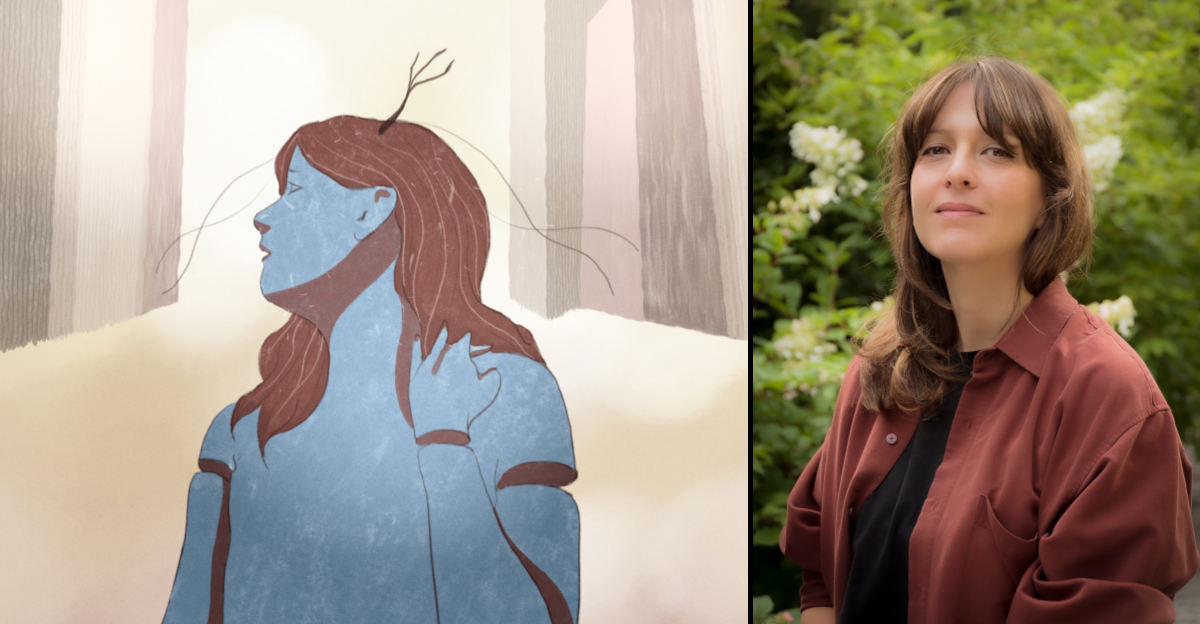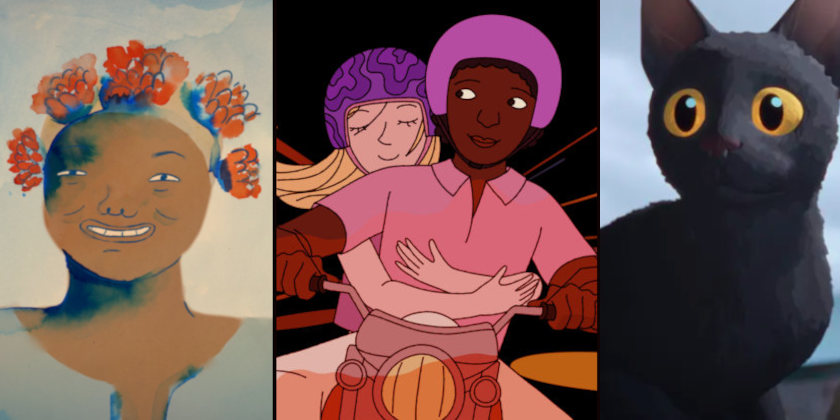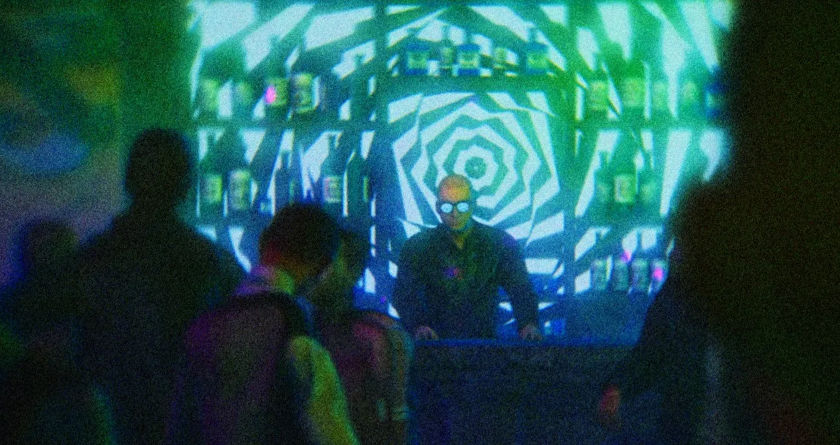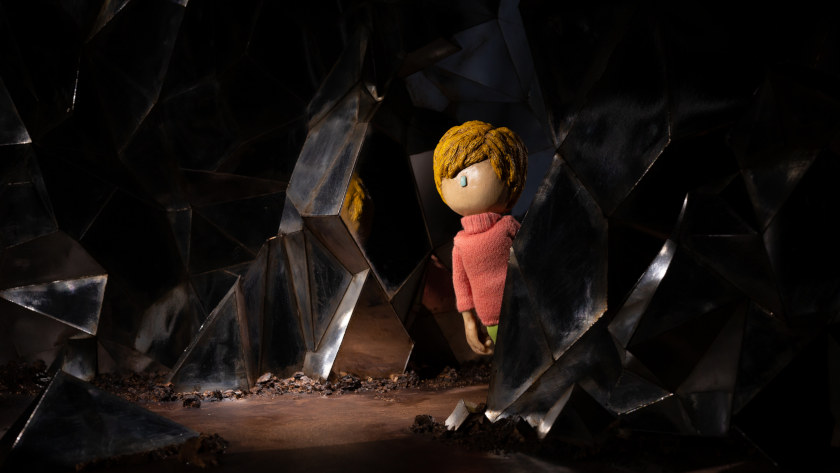Mood Bathing. A Conversation with Torill Kove
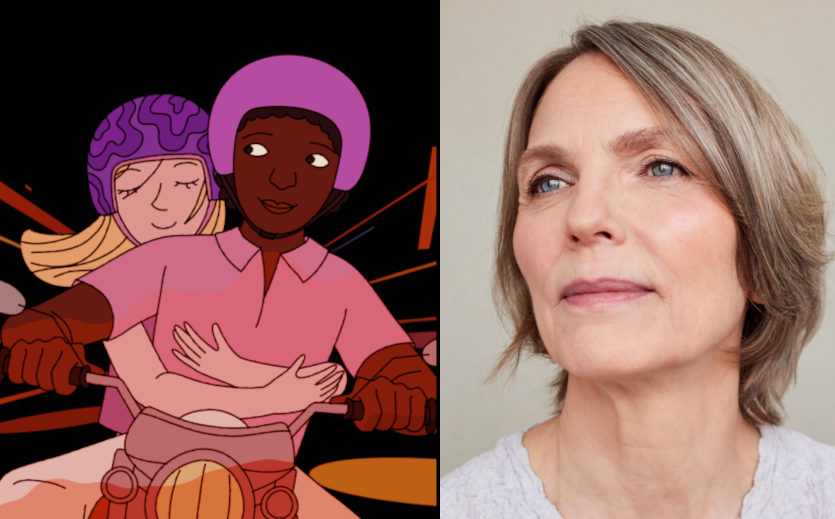
There are no real happy endings in Torill Kove’s gentle comedies that portray life as it is – fascinating but fractured on the inside and filled with obliquities. Kove’s narratives (an 2007 Academy Award winner for the animation short 'The Danish Poet') unfold with numerous threads and motifs whose resolutions arrive at rather melancholic acknowledgement that the passing of time calm emotions but does not drain the feelings. Her newest film is no different, and yet it offers a great dose of intelligently absurd and empathic humor. ‘Maybe Elephants’ (2024, prod. Mikrofilm AS, NFB Canada) was just presented in Annecy where we had a chance to chat with the director, and now off it goes to Ottawa.
ZF: Firstly, let’s focus on your narrative-building strategies. In ‘Maybe Elephants’ you stitched together memories, recollections of the things that really happened to you and your loved ones, the things that might have happened... You also introduced features of a fable to the structure. In one interview, you said that all memoirs were fiction – how do you develop your narratives based on fictionalized memories?
TK: I call my way of writing “autobiographical fan fiction”, because I use the personal experiences from my life – I go in there and I pull things out. In this case, I wanted to make a film about something that happened that had a big impact on my family. What happened was that when my sisters and I were in our late teens, my parents left to live and work in a country really far away. So that’s the kernel of the idea: up to a certain point in my life, I really believed that we had something close to a perfect family, but then suddenly the childhood was over without any kind of transition period. My family became very fragmented. We were split up in several different countries, and for many years, we barely saw each other. So, in a way, I decided to write a story about that and my family’s time in Kenya, which led up to that, but without being so concrete.
ZF: Interestingly enough, you don’t label your work as an “ani-doc”.
TK: No, I don’t. I feel it’s not accurate. There were some discussions early on about categorizing ‘Maybe Elephants’ as an animated documentary but I thought: “it isn’t really; it’s too much fictionalized”. If more of the material had been, for example, about what Kenya was like at the time, then perhaps… When we arrived there, Kenya had only been independent for about 10 years, so this was a very early post-colonial period. Certain aspects of that were included in my original script, but in the end I felt like the history of colonialism in Kenya was too complex a topic to be treated as a subtext in a 16-minutes personal film about family, memories, and attachment.
ZF: Would you agree that ani-docs should be properly historicized?
TK: Yes, they have to explain some reality but not an intimate, subjective reality. I wouldn’t call ‘Maybe Elephants’ an ani-doc, because then I would have to go out and defend this as a story that is documentary and everything as true, while it isn’t. I understand that documentaries can be subjective and selective, but to call ‘Maybe Elephants’ a documentary is too much of a stretch.
Watch the 'Maybe Elephants' trailer:
ZF: What was your writing strategy - did you sit down and reconstruct your memories, did you consult with your family members?
TK: No, I never consulted my family in the sense that I didn’t ask for permission to write my story. But at the same time, I wanted to make sure that my sisters didn’t feel exposed or offended. At some point I gave a draft of a script and storyboard to my sisters, they said it was fine and they didn’t object to anything. So, they basically gave me carte blanche. The first script that I had for this film was completely different from the one that I ended up with. My first animatic was close to 25 minutes long. So, I had this long story with a lot of details and nuances about our lives in Kenya and I just had to pick things away until I had something that was cleaner and shorter. Now the film is very much about my mother. But in the beginning I had thought it was going to be more about what happens to a tight-knit family when you take it out of its context.
ZF: What happened that you realize that this story was actually about this strong but, let’s say, ‘overclouded’ woman character?
TK: I think it was brewing there all the time, a topic that I didn’t really want to touch. There’s the whole question of coming out and saying: “My name is Torill Kove, and my mother struggled with depression”. It just feels a little weird because we don’t know what her depression was about, whether it was severe or mild. It was just something that would come over her, something that made her feel like she needed to get away.
ZF: I think the film shows her depression in a very gentle, beautiful and profound way. Literally – there is a cloud coming.
TK: And I think a lot of people are familiar with that cloud.
ZF: Let’s recall some of your previous films. ‘The Danish Poet’ (2006) is full of humor, irony, and absurd. You play with stereotypes and expectations regarding cultural identities. So, what is the perfect recipe for building a humorous but still deeply psychoanalytical film?
TK: I don’t have a recipe. I think it’s just a point of view. I tend to see humor in all kinds of things. It’s like a coping mechanism.
ZF: Let’s focus on diversity of Scandinavian identities - what’s funny about that?
TK: In ‘The Danish Poet’, I make fun of nationalism because there’s definitely something comical about it, and it’s comical about all those four nations: Iceland, Norway, Denmark, and Sweden. They are so similar in so many ways – basically, we have the same language, we eat the same food, we have the same type of government, and we have very similar histories. And yet, we hang on to these important tribal differences between us. But that kind of tribalism and nationalism often has serious consequences.
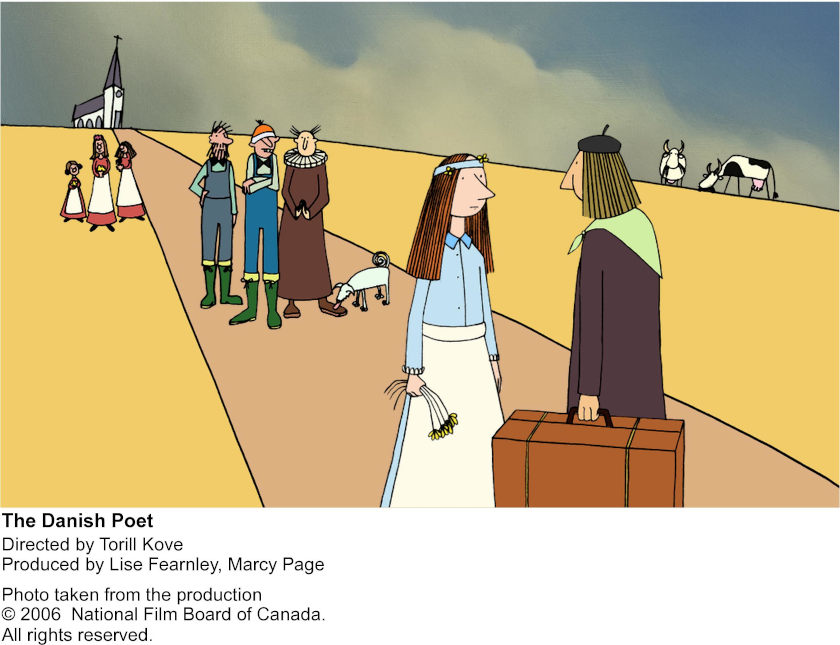
ZF: How your films were received – firstly, by your family, but also, by the domestic audiences in Norway and across Scandinavia?
TK: Well, ‘My Grandmother Ironed the King’s Shirts’ (1999) and ‘Me and My Moulton’ (2014) have a kind of a Norwegian quality about them. ‘King’s Shirts’ especially has it, because it’s linked to the history of the war and the mythology associated with how we learn about it, I think this struck a chord. And I think ‘The Danish Poet’, had a similar effect, it’s inherently Scandinavian in a way.
ZF: “Norwegian quality” – what do you mean by that?
TK: The clothes, the way people behave, the décor, houses, and landscapes… I mean, on both films, ‘King’s Shirts’ and ‘The Danish Poet’, I did a lot of research. I wanted the cityscapes to really resemble Oslo streets. I wanted the landscapes in ‘The Danish Poet’ to look like where I’m from, Eastern Norway. And of course, my films are very stylized so this becomes a caricature in a way.
ZF: Why do you keep being so consistent regarding your visual style and character design?
TK: That’s just how I see that world. In a way I am a realist.
ZF: But actually you are also a modernist.
TK: And then my films are period pieces. ‘King’s Shirts’ was set in the 1940s; ‘The Danish Poet’ unfolds throughout the twentieth century; but ‘Me and My Moulton’ is set on the threshold of the 1960 and 1970s. And so it’s important to me that the style is somehow grounded.
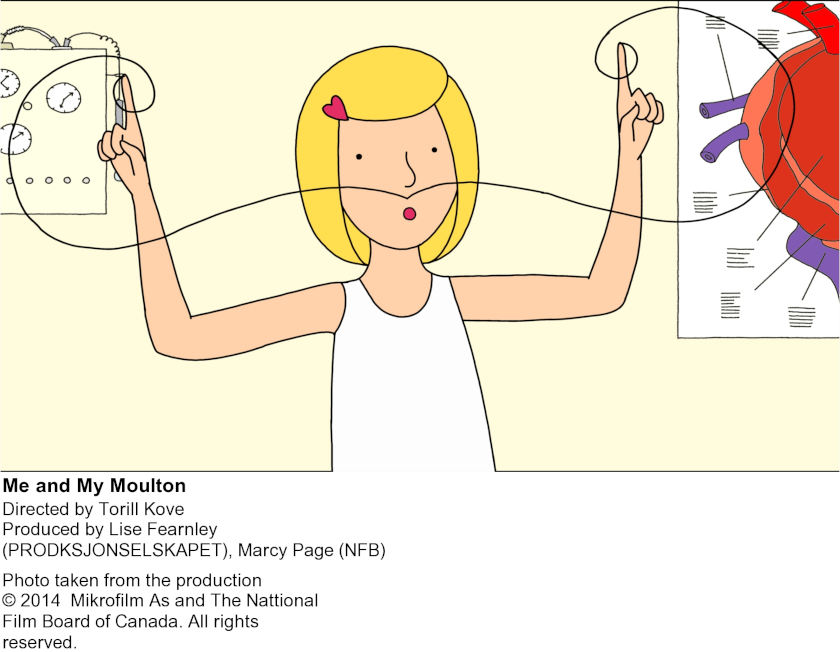
ZF: But even though your films are grounded in something culturally recognizable, you quickly jump into fables…
TK: I know what you mean, but I don’t know how it happens. A lot of it has to do with just my drawing style. I want to be realist, but it’s hard to be realistic when your drawing is so naïve... I think it’s a combination: I want the drawings to be recognizable period pieces, but my tools are primitive in a way.
ZF: Let’s talk about your approaches towards voice acting – in ‘Maybe Elephants’ you gave the narrator your voice and also you directed the actors in Norwegian language, but in ‘The Danish Poet’ you directed Liv Ullman. How did you direct yourself, and how did you direct a star of such format as Ms. Ullman?
TK: Well, I didn’t direct myself because I had a voice coach, Alex Ivanovici. He is a Montreal- based theatre actor who has a lot of experience with voice acting for gaming and animation. Once I called him up and asked if I ever needed someone to help with recording voice for animation, would he be interested? And he said, “Yeah, sure”. Then three years passed, and I happened to be working on that project so I called him up again. And he was just amazing. I learned a lot from the way that Alex directed the other actors, it was very instructive and inspiring. When I went to Norway and I had to direct the Norwegian actors myself, I already kind of felt like I knew more about it. As for my own voice acting – it was something that was seriously out of my comfort zone and I’ve never done it before, but it was fun.
ZF: What about working with Liv Ullman?
TK: Well, that was a little scary, because I didn’t know how to direct an actor. She would sit there and she would read the stuff and I would say: “That’s great, Liv, thank you. Okay, next.” We were in the same room, at some point, she turned around and looked at me and she said, “I know this must be really scary for you to direct me. But I want to make you happy. So you can ask me to do things differently”. After that, I did more of it. It is Liv Ullman, nothing really could have gone wrong. She was lovely, nice, and generous.
ZF: Apparently you have quite complex relationship with the world of visual arts. In one scene from ‘Me and My Moulton’ the father, a modernist architect, talks with a girl (we assume it is you) on the phone, and instead of suggesting to her some games for kids, he says: “Pretend you are Paul Klee or Picasso”. And in 2015, during the ceremony when you were awarded with Anders Jahre Cultural Prize, one of Edvard Munch’s paintings exhibited at the hall of the University of Oslo was covered with a still from ‘The Danish Poet’. What is the best place for you to dive into the realm of visual arts, where are you looking for inspirations?
TK: That's a really tough question. When I’m working on a story, I become really interested in the memories that I have that relate to that particular story. And then that will be my favorite thing to dive into. When I was working on ‘Maybe Elephants’ early on, all I did was make these little Photoshop or watercolor sketches of memories out of landscapes in Kenya. I felt similarly about all kinds of situational images in ‘Me and My Moulton’ – just kind of constellations of my parents together with us, five of us in our environment. I draw from what’s around me. I was really sorry to find only one photograph from Kenya at my sister’s (who is a keeper of most of the family stuff). I know more photographs exist somewhere and that would have been really helpful to me. But then I thought: “Well, it’s not a disaster, because I can remember enough and make it all up anyway”.
ZF: Because all memoirs are fiction.
TK: All memoirs are fiction. It’s like a mood bath in a way. I have this story that I want to write for whatever reason. And then there are visuals that just kind of feel like they need to go along with it.
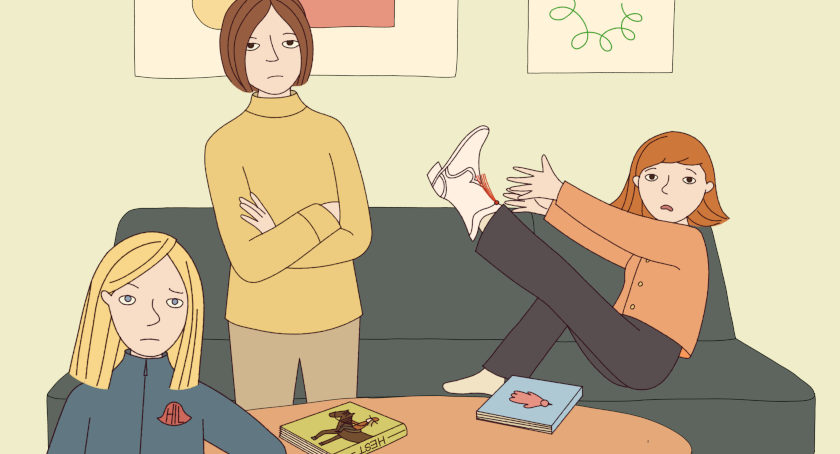
Maybe Elephants
About Torill Kove:
Torill Kove is a Norwegian-born filmmaker and animator living in Canada. Three of her films (including ‘My Grandmother Ironed the King’s Shirts’ and ‘Me and My Moulton’) have been nominated for Academy Awards, with ‘The Danish Poet’, narrated by Liv Ullmann, winning the coveted golden statue in 2007. Kove’s films are known for her expressive designs and playful and poignant autobiographical themes. In her latest film, ‘Maybe Elephants’ (2024), Kove, at long last, faces her fear of big-eared mammals.
The interview was conducted during the 2024 Annecy Festival.
contributed by: Olga Bobrowska




